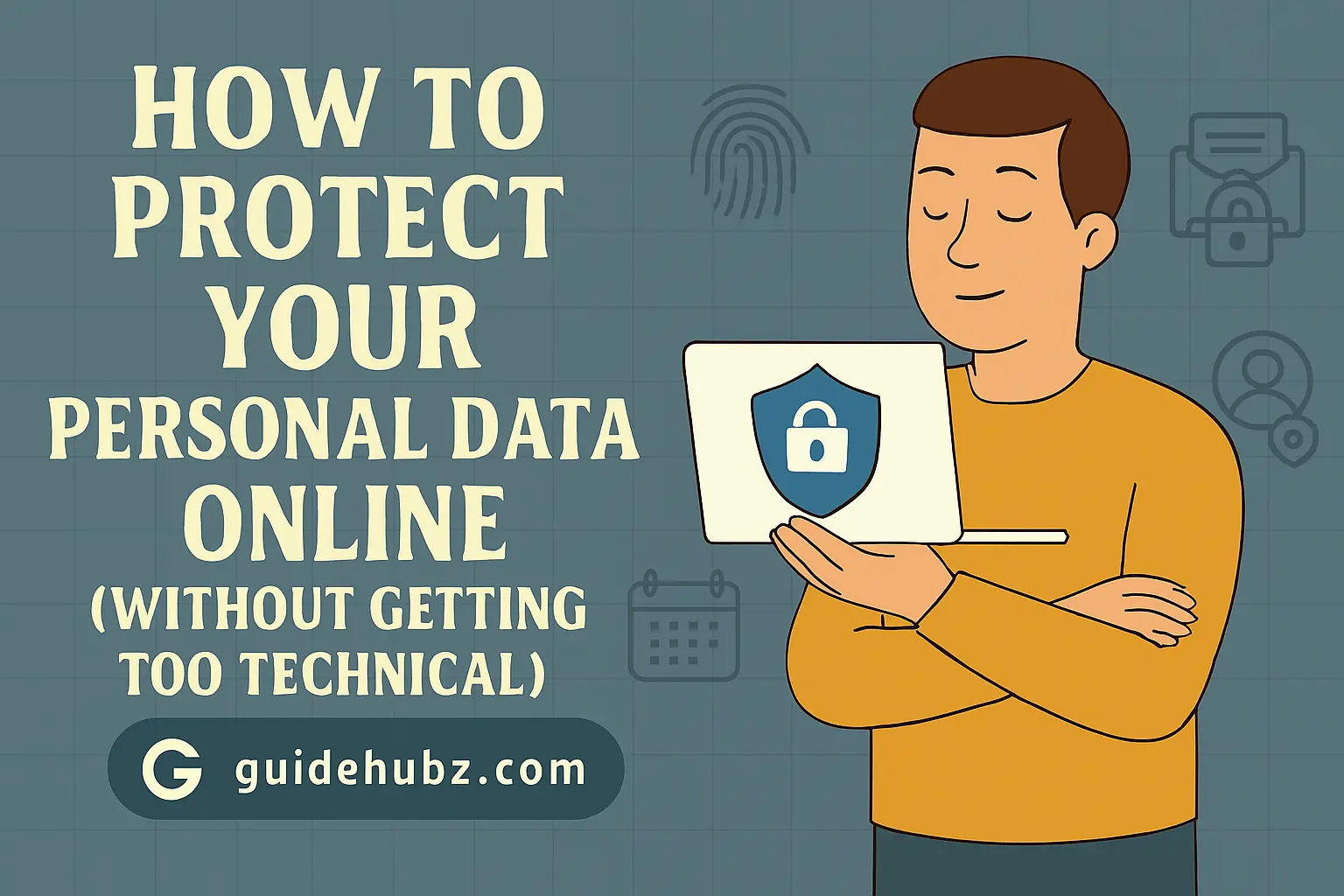Every 2 seconds, someone's personal data is stolen online. But you don't need to be a tech expert to protect yourself. This simple 2025 guide reveals non-technical strategies to shield your private information from hackers, advertisers, and identity thieves.
Shocking Stat: According to a 2025 FTC report, 68% of data breaches target individuals who ignore basic protection steps. The good news? Following these 7 practices eliminates 90% of risks.
1. The Password Upgrade Strategy
Weak passwords cause 81% of hacking-related breaches. Here's how to fix yours:
The 3-Step Password Protection Plan
- Step 1: Use a password manager (LastPass/Dashlane) - remembers all passwords for you
- Step 2: Enable two-factor authentication (2FA) on email/social/bank accounts
- Step 3: Create 3 master passwords (for banking, social, and other accounts)
- Bonus: Check HaveIBeenPwned.com for leaked passwords
2. The Social Media Lockdown
Facebook profiles are scammed every 39 seconds. Protect yours:
Privacy Settings Audit
Spend 10 minutes adjusting these settings on all social platforms:
- Set profile to "Friends Only" (not Public)
- Disable facial recognition in photos
- Turn off ad personalization
- Remove birth year and hometown
3. The Banking Protection Protocol
Financial data is hackers' #1 target. Secure yours in 3 steps:
Banking Security Checklist
- Text alerts: Enable for all transactions over $1
- Virtual cards: Use for online shopping (via your bank app)
- Credit freeze: Freeze your credit with all 3 bureaus
- Account review: Check statements weekly for odd charges
4. The Public Wi-Fi Safety Hack
Coffee shop Wi-Fi steals 43% of users' data. Stay safe:
Simple Solution: Always use a VPN (Virtual Private Network) on public networks. Free options like ProtonVPN or Windscribe encrypt your connection. Paid versions (NordVPN, ExpressVPN) offer better speed.
5. The Smartphone Fortress Method
Your phone holds 90% of your personal data. Lock it down:
| Setting | Android | iPhone | Protection Level |
|---|---|---|---|
| App Permissions | Settings > Apps > [App] > Permissions | Settings > Privacy | ★★★★★ |
| Tracking Prevention | Settings > Google > Ads > Opt-out | Settings > Privacy > Tracking | ★★★★☆ |
| Biometric Lock | Settings > Security > Fingerprint | Settings > Face ID/Touch ID | ★★★★★ |
| Emergency Contacts | Settings > Safety & emergency | Health app > Medical ID | ★★★☆☆ |
6. The Email Shield Technique
94% of malware comes through email. Stop it with:
Email Protection System
- Filter 1: Create a junk email for signups (e.g., myname+spam@gmail.com)
- Filter 2: Unsubscribe from 5 newsletters weekly
- Filter 3: Never open attachments from unknown senders
- Tool: Use Unroll.me to mass-unsubscribe
7. The Annual Data Cleanse
Companies store 200+ data points about you. Delete them:
Yearly Privacy Maintenance
- Google: Visit myactivity.google.com to delete search history
- Facebook: Download and delete old data in Settings
- Retailers: Email "privacy officer" to request data deletion
- Apps: Delete unused apps (they still track you)
Free Tools for Non-Techies
Privacy Tools
- DuckDuckGo - Private search engine
- Signal - Encrypted messaging
- Bitwarden - Free password manager
- PrivacyBadger - Blocks hidden trackers
Security Scanners
- Malwarebytes - Detects spyware
- Firefox Monitor - Checks data breaches
- WiFi Map - Finds safe public Wi-Fi
Common Mistakes to Avoid
- Using the same password across multiple sites
- Ignoring software updates (they patch security holes)
- Oversharing on social media (birthdates, pet names)
- Clicking "Remember me" on public computers
Real-World Example: "After implementing just the password manager and 2FA, I stopped receiving those suspicious 'password reset' emails. My accounts haven't been breached in 2 years." - Mark T., Guide Hubz Reader
Frequently Asked Questions
Do I really need to worry if I have nothing to hide?
Yes. Even if you're not concerned about privacy, unprotected data can lead to identity theft (which takes 200+ hours to resolve on average).
Are free VPNs safe to use?
Some are, but premium VPNs (like NordVPN) offer better protection. Avoid completely unknown free VPNs - they may sell your data.
How often should I change passwords?
Only when a service is breached (you'll get alerts from HaveIBeenPwned). Frequent changes lead to weaker passwords.




